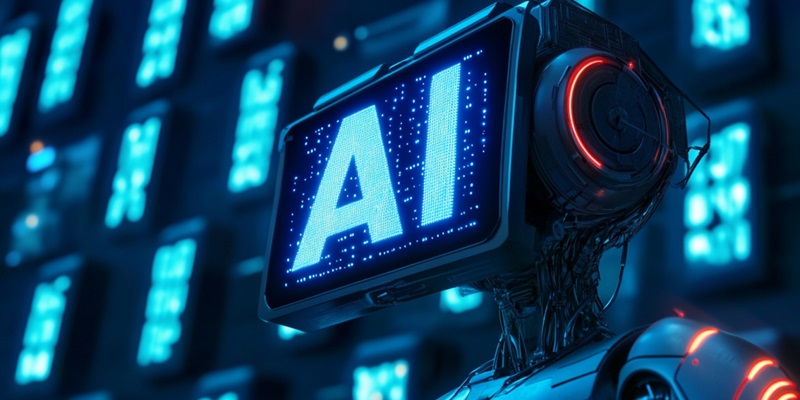In the rapidly evolving landscape of technology, artificial intelligence (AI) is emerging as a critical driver of change in various fields, with the engineering profession being no exception. According to the 2024-25 Upskilling Trends Report by Great Learning, there is an increasing necessity for engineers to acquire new skills, especially in AI and machine learning (ML), to remain relevant in job markets that are constantly changing. The study underscores a growing concern among engineers about the impact of AI on their careers, which, in turn, has emphasized the need for continuous education and skill enhancement.
The Necessity of Upskilling in AI and ML
Engineers’ Perception of AI’s Impact
In light of recent studies, 67.5% of engineers believe that AI negatively impacts their jobs, compelling a significant 87.5% to see upskilling as critical to maintaining their career trajectories. This sentiment is reflected in the findings that 89% of engineers plan to focus on AI and ML, while 86% are demonstrating interest in enhancing their Generative AI skills. The apprehension surrounding AI’s impact on job security suggests a fundamental shift in how engineers perceive their roles and responsibilities.
Dr. Dinesh Seth, Dean of the School of Engineering & Technology at MIT World Peace University, Pune, particularly highlights the growing demand for engineers proficient in AI-related domains such as machine learning and data analytics. According to Dr. Seth, engineers who can integrate AI outputs into existing systems and manage AI-driven processes will continue to be highly sought after. This guidance is echoed by other experts, who emphasize the increasing value of roles that require human judgment and advanced skills, which are not easily replicable by AI.
Conversely, engineers who lack proficiency in AI and data analytics are likely to face significant career disadvantages. The rapid adoption of AI technologies is reshaping industry expectations, making it imperative for engineers to adapt accordingly. The Upskilling Trends Report makes it clear that without a commitment to acquiring these new skills, today’s engineers risk being left behind in an increasingly AI-driven world where their traditional expertise might no longer suffice.
The Growing Importance of Supervisory Roles
As AI systems become more integrated into engineering processes, the demand for supervisory roles that involve overseeing AI outputs and processes is set to rise. Engineers who can bridge the gap between AI capabilities and practical applications will be invaluable in ensuring that AI-driven projects are executed efficiently and effectively. These roles require a deep understanding of both engineering principles and AI methodologies, underscoring the need for a holistic approach to education and professional development.
Dr. Mangesh V Bedekar, Dean of the School of Computer Engineering & Technology, notes that the value of human judgment in engineering cannot be overstated, even as AI technologies evolve. The ability to make informed decisions, troubleshoot complex issues, and adapt AI solutions to real-world challenges will differentiate successful engineers from those who struggle to keep pace. Therefore, engineers must focus on acquiring skills that complement AI, rather than fear its encroachment on their traditional domains.
The Critical Role of Lifelong Learning
Addressing the Skills Gap
Hari Krishnan Nair, Co-founder of Great Learning, brings attention to the skills gap that exists between engineering graduates and industry demands. The 2023 India Skills Report highlights that only 46% of engineering graduates are currently employable, largely due to the misalignment of skills taught in educational institutions and those required by the industry. This skills gap is a critical issue that needs to be addressed if engineers are to remain competitive in a rapidly changing technological landscape.
Nair emphasizes the importance of lifelong learning and continuous skill acquisition. In an industry where technological advancements occur at a blistering pace, engineers must be proactive in staying updated with the latest tools, techniques, and methodologies. This approach not only enhances employability but also equips engineers with the capabilities to innovate and drive technological progress. Establishing a culture of continuous learning can significantly mitigate the risks posed by AI and ensure that engineers remain valuable assets to their organizations.
The Industry’s Response to AI Advancements
In the fast-changing realm of technology, artificial intelligence (AI) is becoming a key influencer across many sectors, and engineering is no exception. According to the 2024-25 Upskilling Trends Report by Great Learning, there’s a significant need for engineers to learn new skills, particularly in AI and machine learning (ML), to stay competitive in ever-evolving job markets. The study highlights a rising concern among engineers about how AI will affect their careers. This concern has underscored the importance of ongoing education and skill development. As AI and ML technologies advance, they are reshaping not just how engineering tasks are performed, but also what skills are valued. Engineers must now focus on building expertise in these areas to adapt and thrive in their careers. Embracing continuous learning and adapting to new technological advancements can help engineers mitigate the risks posed by AI while also unlocking new opportunities. This trend reflects a broader shift toward lifelong learning in the professional world, where staying updated with the latest technological trends is crucial for long-term success.

